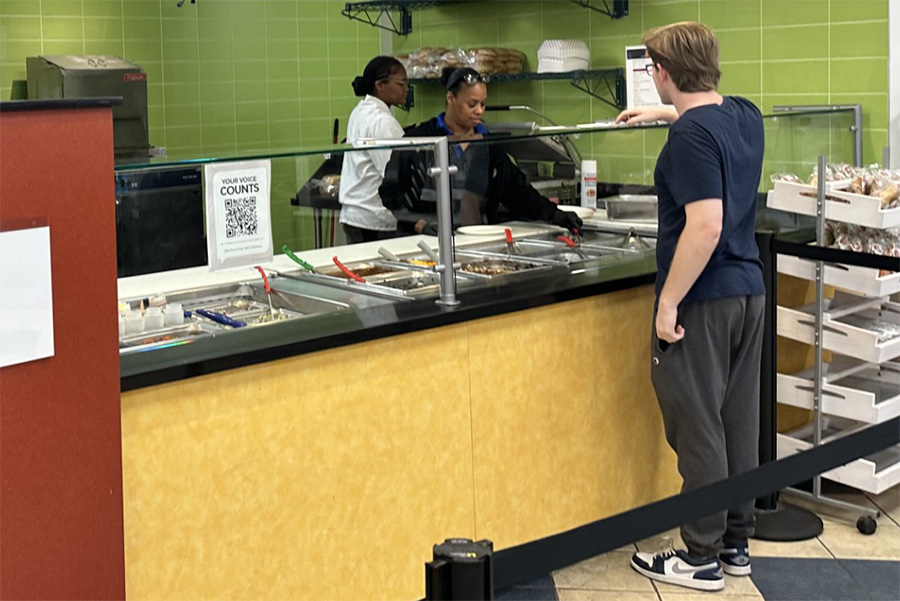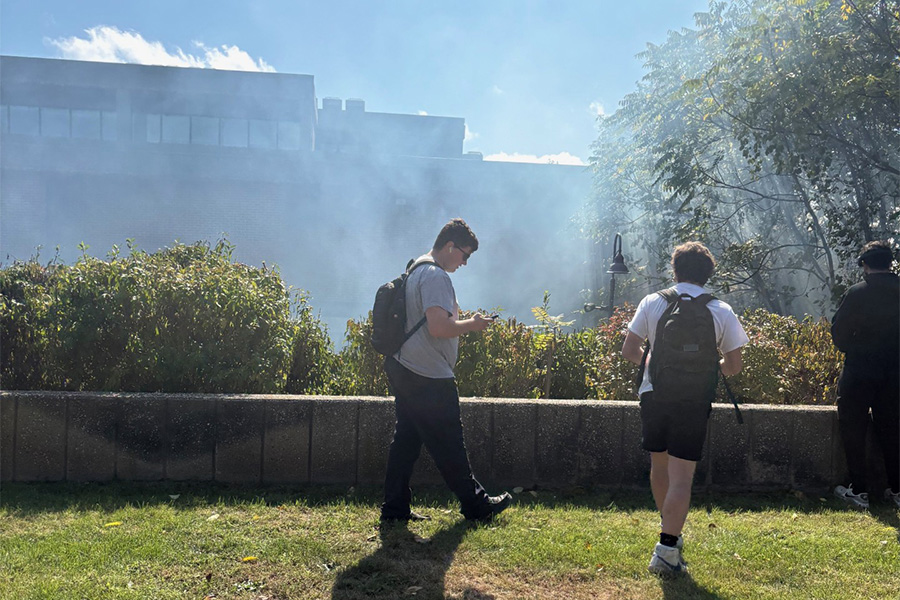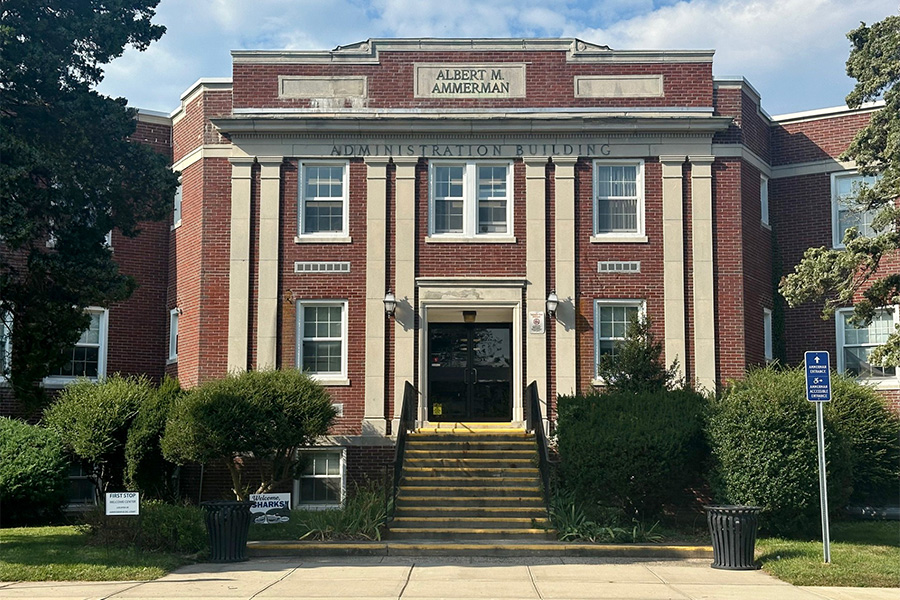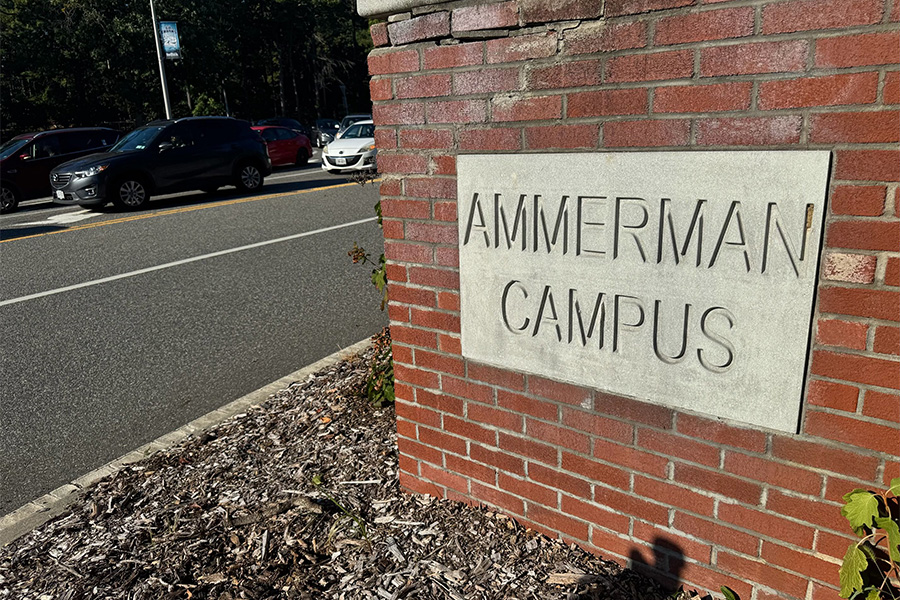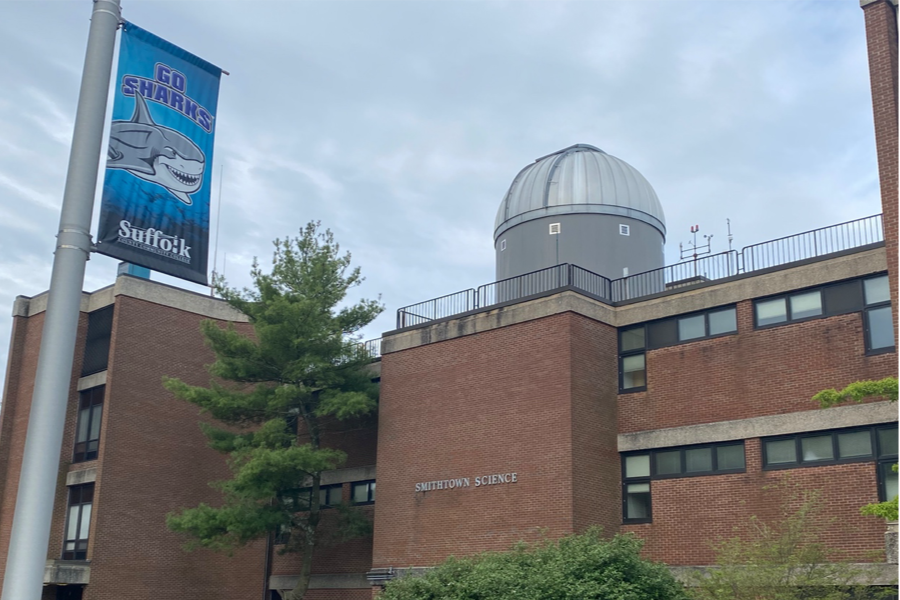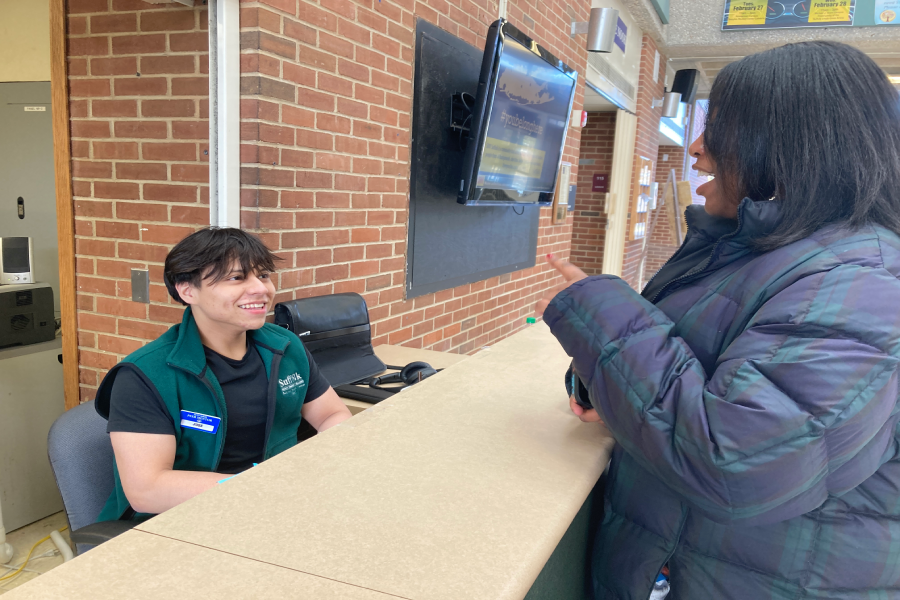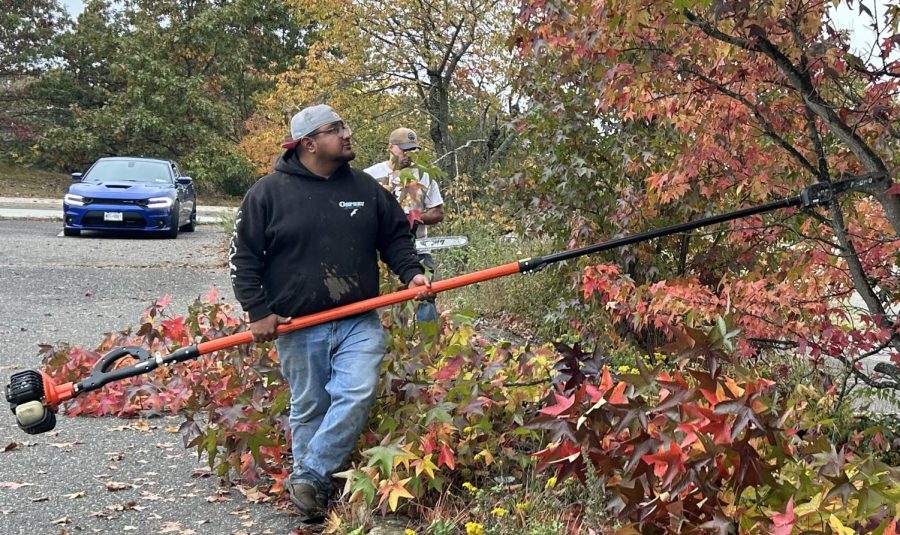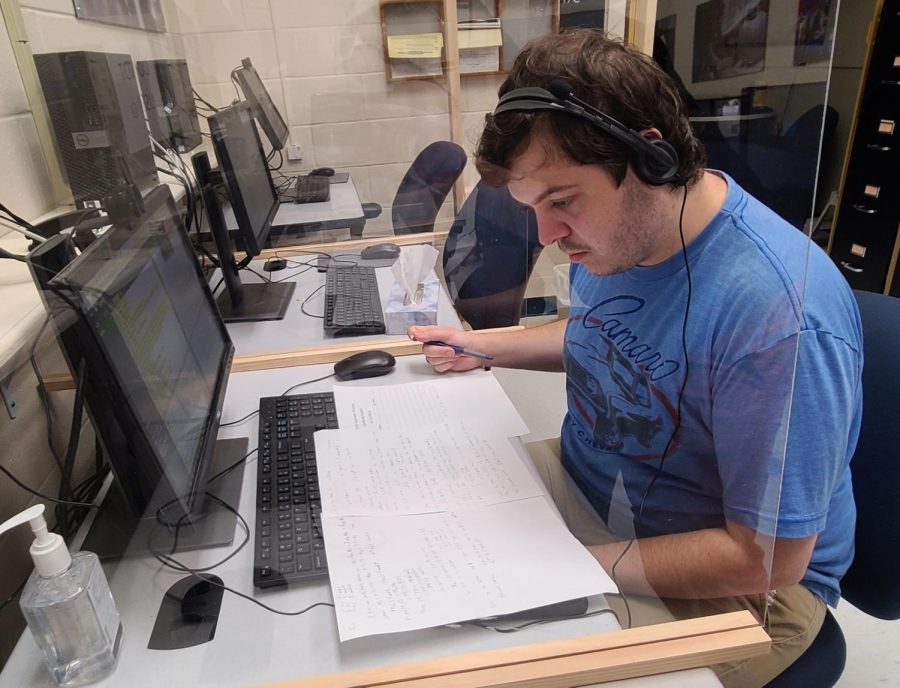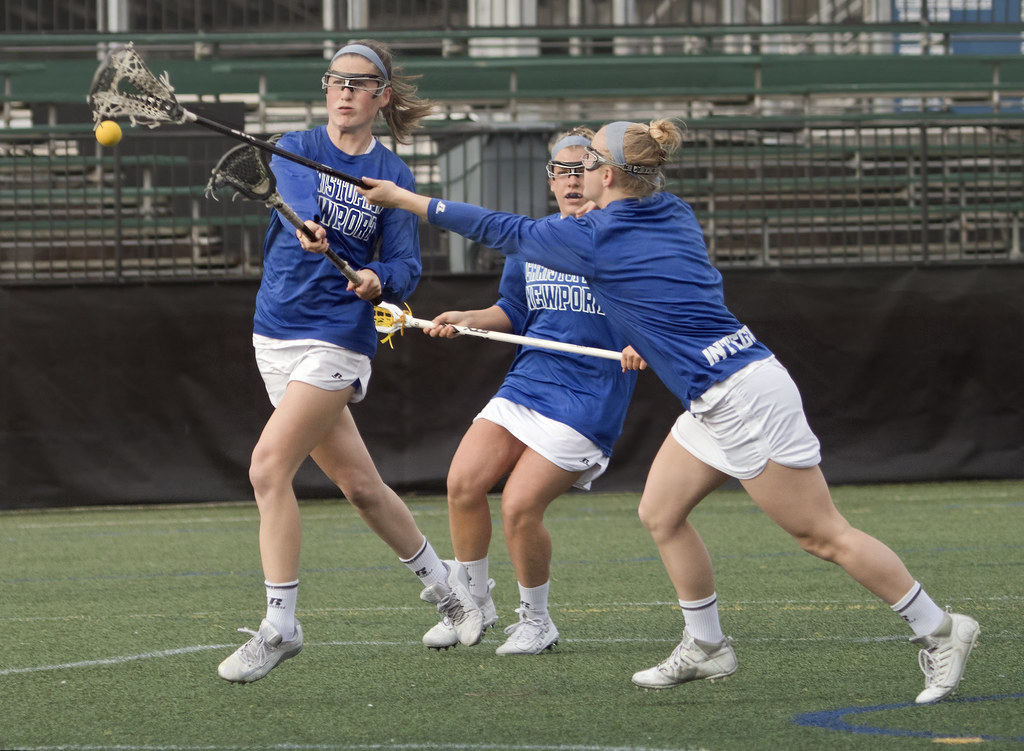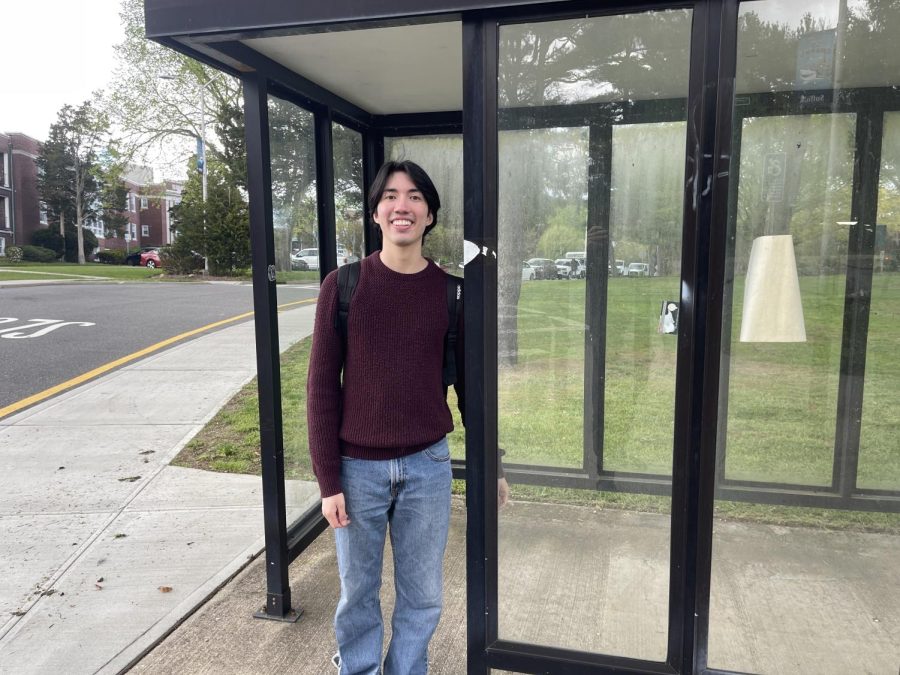Some Suffolk Students Face a Long Haul to Campus
Public transportation or long distances can lead to more than 1-hour commutes.
Josefelix Gomez Alviarez, a 19-year-old business administration major from Shirley, at his Suffolk County Community College bus stop on May 3, 2023. It often takes Alviarez up to two hours to arrive at school in the morning. (Compass News/James Quigley)
May 4, 2023
Josefelix Gomez Alviarez, 19, a business construction major in his second semester at the college who lives in Shirley, relies on the Suffolk County Transit system to get to the Ammerman campus of Suffolk County Community College, a commuter-only school. Alviarez gets up at 5:40 a.m. to catch the S66 6:30 a.m. bus for a 30-minute ride to Patchogue, then waits another 30 minutes for his next bus to arrive, which will take him to the college.
“It really is a very, very hectic commute for me,” Alviarez said. “After all of that chaos, I usually arrive at school an hour before my first class of the day begins at around 8-8:30. I usually don’t mind arriving at school this early, as it is my only option because of the bus schedule.”
Alviarez advised fellow commuters to make sure that they have all of their personal belongings to avoid the risk of losing items when switching buses multiple times.
Access to transportation is a significant factor in students’ experience in obtaining a higher education. Students like Alvaiarez have to center their entire school day around when they are able to get transportation to campus. With Suffolk students coming from all different places on Long Island, they have completely different experiences commuting to school.
Financial Challenges
Suffolk drivers ostensibly have a more convenient path to school, but they often face long commutes.
Alex Guastella, a 19-year-old general studies major from Shirley, drives about 40 minutes one way to Ammerman four days a week.
“Since I am a full-time student, it has been really hard for me to balance school and work at the same time,” said. Guastella, who works at a local Applebee’s around 24 hours per week. “I don’t usually get much time to work, and it has become very difficult at times to be able to save up enough money to fill up my gas tank.”
Guastella said he has learned to spend his money wisely to save. “There have been multiple occasions where I have run low on money. It has taken a lot of time for me to be able to develop that sense of self control. Reality has really been kicking in for me and I need to spend my money wisely.”
Transportation costs are a crucial factor commuter students have to budget for. In a 2021 report done by the College Board, it found that for an undergraduate commuter student attending a public two-year college, $1,840 accounted for the transportation costs of the average student.
Guastella recalled having recent issues with his car.
“There was a time where I had to replace all four tires on my vehicle. In order to get to school, I had to take my mom’s car, ” which because he had to drive his mother to and from work, added an additional 20 minutes to his route.
“If I could give any advice to drivers with a long commute, I would say to make sure you have a stable commute and to watch out for any signs of car issues.”
Plan Ahead
Students that need to commute for long-distance also need to plan for any potential circumstances such as traffic that could increase their commute time.
Angela Panganiban, 21, a communication studies major from Greenport, attends both the Ammeraman and Eastern campus, so her commute varies — about one hour, or 50 miles, to the Ammerman campus, or about 30 to 45 minutes to the Eastern campus.
“The commute off the North Fork isn’t bad, but if there’s an accident on the LIE or Nicolls, my whole commute could take way longer than it should,” Panganiban said, adding, “I plan to live on campus next semester [after transferring to Stony Brook University] because I hate commuting weekly.”
